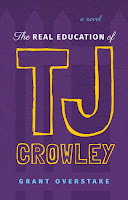Daily Devotions For Writers rests next to my printer, where I can reach it easily every morning before beginning to work. The life lessons the book contains offer advice, relate trials and also inject a bit of humor. Some of the writers talk of a revelation that came when least expected. Most of the devotions include a scripture verse and/or a prayer—sometimes a quote.
After reading the daily devotional book for a few months, I noticed that a pattern appeared to emerge in the guise of a two-sided coin. On one side of the coin, I sensed frustration from so many of the writers. It appears to be a universal theme for both seasoned and new writers. But flip the coin over, and satisfaction is evident.
Novice writers may experience the frustration in greater amounts than the satisfaction. It takes perseverance and patience to traverse the tunnel of disappointment. Doesn’t every writer dream of instant success? When rejection letters pile up faster than election campaign literature, what’s a writer to do? Confidence levels fall with alarming speed when new or even long-time writers don’t meet with some success. Doubt pays daily visits, and if a writer chooses to entertain him, he’ll stay.
Believe in yourself and your work. If you have something to say, a story to entertain or to make a difference in the lives of others, don’t let the early-days frustrations get you down. Make marketing lists, and work your way down that list until you either find an editor to accept a particular story, article, poem, or novel chapters, or have exhausted the list. If every editor you’ve selected rejects your submission, it’s time to take a look and determine why the piece didn’t sell. Make some revisions and try again. It’s rarely easy to look at your own work objectively, but it’s possible, and it will be to your advantage to do so.
Lack of time to write is one common frustration. Life tends to get in our way. Occasionally, the writer allows that to happen, for what better way to postpone a project that’s not coming easily? A serious writer creates time to write. Frustration also occurs when an idea forms in the mind but won’t translate into the printed word. From the brain to the fingers is not always a smooth road.
Once in awhile, a writer finishes an article or story, puts it aside for the required seasoning of a few days, then brings it out again only to find that it doesn’t say what she wanted to say at all. In fact, the writer is disgusted with the piece and is ready to hit the delete button. It’s the very reason writing books and editors advise setting a finished piece of writing aside for a few days. Then the writer reads it with a new perspective; sees with different eyes and gains satisfaction from the process of improvement. Isn’t it better that she hasn’t been one of those writers who dash off a piece and call it finished, then send it to an editor immediately? More than likely, it will come flying back with a form rejection letter. Avoid this kind of frustration by allowing yourself some time between a partially finished and a truly completed piece.
While frustration often looms over a writer’s head, it’s not all bad. Beneficial lessons present themselves through the haze of the stress involved. It’s up to the writer to discern the positive angles. Face your frustrations with open eyes and a willingness to turn them to your advantage.
One of the best parts of being a writer comes with the publication of your work. It’s comparable to a gift placed in a golden box and tied with a silver bow, your name on top. Here’s where the satisfaction side of the coin shows up. No matter how many times your work is published, it’s a pleasure. It definitely erases some of that frustration, which never disappears completely but can diminish and become of less importance with each success.
Sometimes satisfaction comes from the fulfillment in achieving a completed story, novel, article or essay. Many writers begin a project and never finish. I’m willing to guess that most writers have folders with half-done projects. But it’s those completed pieces that allow satisfaction to enfold us like a soft, silken shawl. Revel in it when it occurs.
What joy there is when inspiration hits while we’re doing a mundane household task, or driving a car pool. Maybe a character begins to form in your mind when waiting for a bus, or a word you’ve sought reveals itself during a conversation with a friend.
Another form of satisfaction comes when an editor assigns a project and we manage to return it completed with all points covered. Writing on speculation is much easier than writing to a specified set of objectives. For assigned articles, a writer must do the research, write a first draft, revise and edit her work, then check to see if she’s covered everything asked for. Including all points asked for requires good concentration and writing skill, so any satisfaction at the end is well-earned.
Escaping into another world while writing is one more form of satisfaction. While writing, we create a place of refuge, creativity, and personal meditation that can prove emotionally fulfilling.
I will continue reading the daily offerings in the devotional book for writers, and I am certain I’ll continue to learn from other writers’ frustrations, as well as enjoy the happiness that comes through when they are satisfied. I’m going to plan to keep the satisfaction side of the coin face up. It’s a lot more fun than the other side and is bound to make me a more productive, more creative writer.
© 2008




























